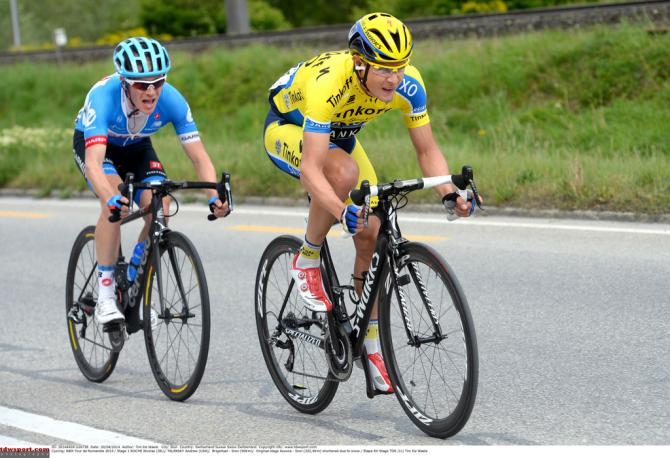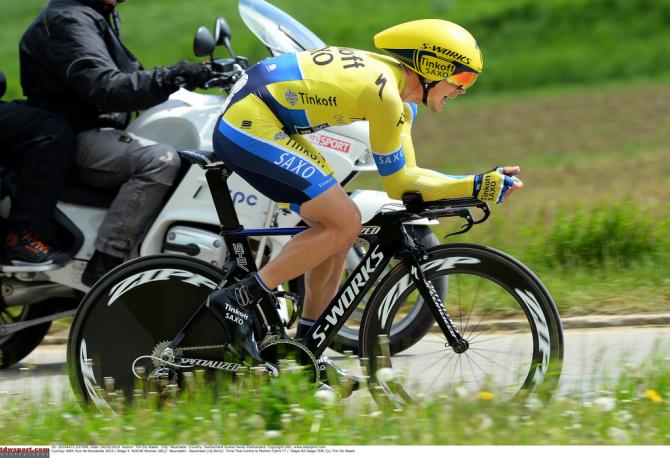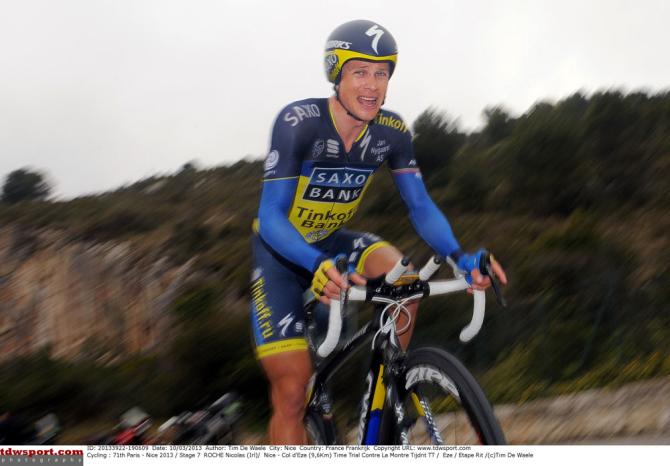Roche has designs beyond Irish stages at Giro d'Italia
Tinkoff-Saxo man aims for top 10 finish in Trieste



The troika of Irish stages may have been the motivating factor for Nicolas Roche to line up at the Giro d'Italia for the first time since 2007 but the Tinkoff-Saxo man enters the race with the long game in mind. After landing fifth place at last year's Vuelta a España, Roche is targeting a top 10 finish in Trieste, although he acknowledged that he is part of a large echelon of riders with a similar ambition.
"The nice thing about the Giro or any three-week race is that there are always two or three who are there for the podium and then 20 other riders who are capable of doing anything between fourth and 20th," Roche said. "There's always somebody who has bad day, somebody who blows up during the Giro. So it's hard to say where I'll end up. Hopefully in the top 10, that would be nice. I'd be disappointed if I'm not there."
Roche's only previous Giro experience also marked his first three-week stage race as a raw 22-year-old and he reached Milan in 122nd place, over thee hours down on the winner, Danilo Di Luca. Although he has amassed a steady sequence of results since then at the Tour de France and Vuelta, Roche acknowledged that the style of racing at the Giro poses a very different challenge.
"I haven't done the Giro since 2007, so I'm a bit inexperienced in that sense. It's raced very differently to the Tour or the Vuelta, so I'll have to adapt to this race as I don't know it very well," he said. "I don't have points of reference. I don't know the climbs because I've never done them apart from the Stelvio and a couple of others."
Roche flitted seamlessly between English, French and Italian when speaking with the press in Belfast ahead of this Giro, a reminder that he spent time living in Varese in the past, and so he is not wholly unfamiliar with the terrain ahead of him.
He is, of course, even more intimately acquainted with the roads on the menu on the opening three days in Ireland, particularly on stage 3 from Armagh to Dublin, when the peloton will passes through Dundalk, the County Louth town where Roche won his very first race, as an under 14 rider.
"If the Giro wasn't starting in Ireland, then I probably would have done the Tour de France and the Vuelta a España like before, as I've followed that programme for the past few years," said Roche, who admitted that he hadn't even considered the potential for crosswinds on the Irish stages until his teammates voiced their concerns on arrival in Belfast.
Get The Leadout Newsletter
The latest race content, interviews, features, reviews and expert buying guides, direct to your inbox!
"When I think of wind, I always think of the echelons in Belgium and northern France, but since we've arrived here, everyone's been talking about the wind and I've realised that it's probably stronger here in Belgium," he said.
"I've always just seen it as something natural and I didn't really see it as something that could have an impact on the race on Saturday, but the more I think about it, the more I realise that it could have an effect. There are teams who might be tempted to try something. The roads here aren't the widest and there mightn't be room for everybody to get in the echelon. Anything can happen at the Giro, even on the second day."

Barry Ryan was Head of Features at Cyclingnews. He has covered professional cycling since 2010, reporting from the Tour de France, Giro d’Italia and events from Argentina to Japan. His writing has appeared in The Independent, Procycling and Cycling Plus. He is the author of The Ascent: Sean Kelly, Stephen Roche and the Rise of Irish Cycling’s Golden Generation, published by Gill Books.